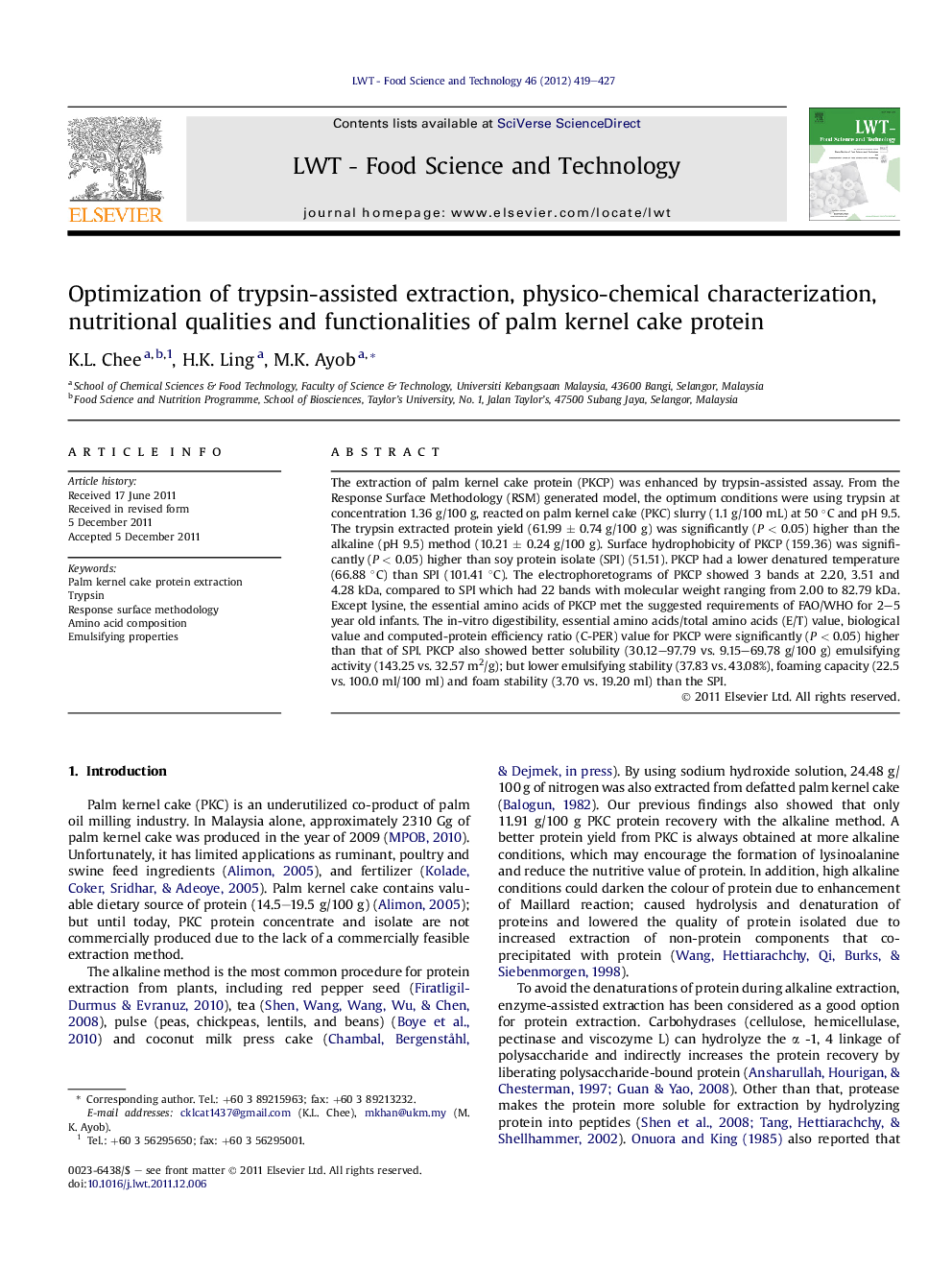| Article ID | Journal | Published Year | Pages | File Type |
|---|---|---|---|---|
| 6405700 | LWT - Food Science and Technology | 2012 | 9 Pages |
The extraction of palm kernel cake protein (PKCP) was enhanced by trypsin-assisted assay. From the Response Surface Methodology (RSM) generated model, the optimum conditions were using trypsin at concentration 1.36 g/100 g, reacted on palm kernel cake (PKC) slurry (1.1 g/100 mL) at 50 °C and pH 9.5. The trypsin extracted protein yield (61.99 ± 0.74 g/100 g) was significantly (P < 0.05) higher than the alkaline (pH 9.5) method (10.21 ± 0.24 g/100 g). Surface hydrophobicity of PKCP (159.36) was significantly (P < 0.05) higher than soy protein isolate (SPI) (51.51). PKCP had a lower denatured temperature (66.88 °C) than SPI (101.41 °C). The electrophoretograms of PKCP showed 3 bands at 2.20, 3.51 and 4.28 kDa, compared to SPI which had 22 bands with molecular weight ranging from 2.00 to 82.79 kDa. Except lysine, the essential amino acids of PKCP met the suggested requirements of FAO/WHO for 2-5 year old infants. The in-vitro digestibility, essential amino acids/total amino acids (E/T) value, biological value and computed-protein efficiency ratio (C-PER) value for PKCP were significantly (P < 0.05) higher than that of SPI. PKCP also showed better solubility (30.12-97.79 vs. 9.15-69.78 g/100 g) emulsifying activity (143.25 vs. 32.57 m2/g); but lower emulsifying stability (37.83 vs. 43.08%), foaming capacity (22.5 vs. 100.0 ml/100 ml) and foam stability (3.70 vs. 19.20 ml) than the SPI.
⺠Trypsin assay extracted 6 times higher PKC protein than the alkaline method. ⺠PKCP exhibited better in-vitro digestibility, BV and C-PER than SPI had. ⺠PKCP showed excellent solubility and emulsifying properties.
